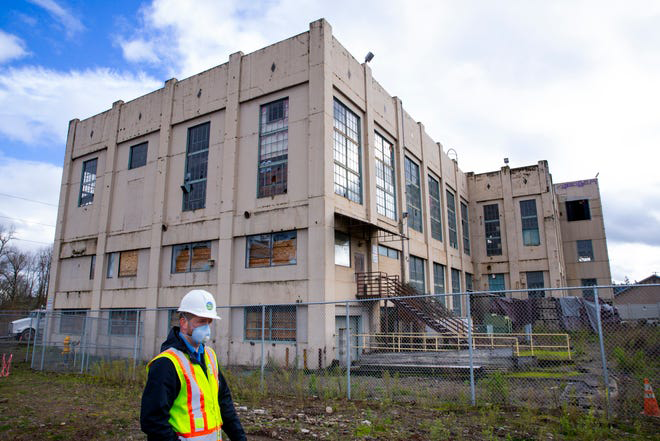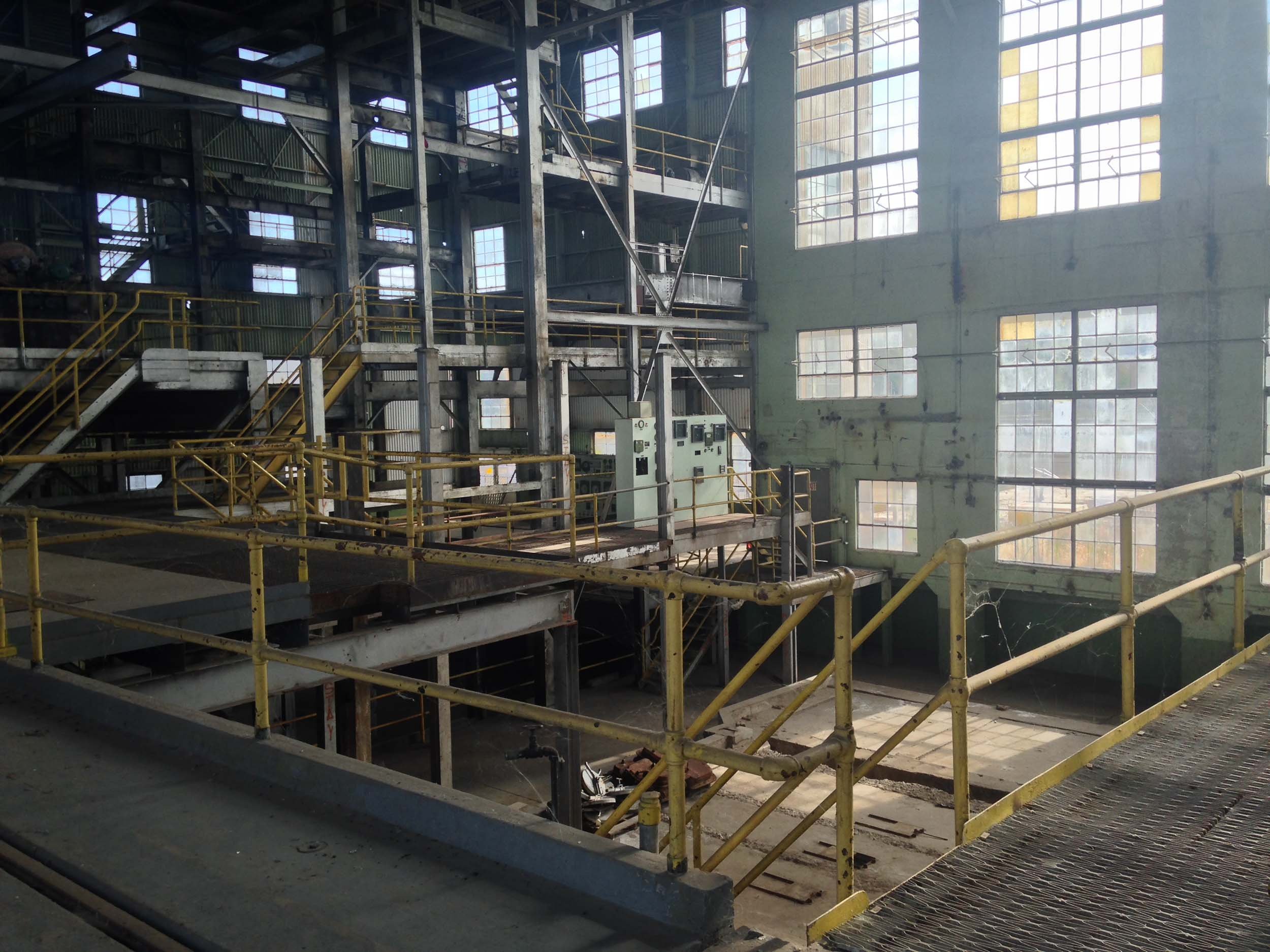Steam Plant featured in the Register-Guard
Chris Pietsch/The Register-Guard
Eugene officials approve $1 sale of historic EWEB steam plant for redevelopment
By Megan Banta
The Register-Guard
January 26, 2022
Eugene officials unanimously approved terms to sell the former Eugene Water & Electric Board steam plant to a development team.
City councilors on Wednesday voted to sell the nearly 100-year-old building to a development team that will overhaul the building to serve as a southern anchor for the Downtown Riverfront Park development, which will include the park, housing and retail once complete.
The Dream Plant LLC team, led by Mark Miksis of deChase Miksis Development and Arcimoto CEO Mark Frohnmayer, plans to preserve and redevelop the
building into a mixed-use building with public space on the ground floor and roof.
The steam plant dates back to the 1930s and provided standby electrical power for decades, then supplied heating to downtown businesses until 2012, when EWEB shuttered the building.
Eugene’s Urban Renewal Agency purchased the building from EWEB in April 2018 and has been working with the Dream Plant development team since 2019 to come to an agreement on sale terms and start transforming the building.
Plans have evolved throughout negotiations, with the developers swapping co-work office space for a boutique hotel and adding more opportunities for public use and community art.
Developers buying for $1 and investing $49 million
Under the terms approved during Wednesday’s work session, the development team will buy the building for $1 and invest more than $49 million to transform it from an “industrial cathedral” to a modern, mixed-use space.
Will Dowdy, the city’s community development director, explained the minimal sale price is because of how complicated the project is. The city can’t approach the sale of the steam plant the same way it would try to sell a modern building that’s up to code, he said.
“This building is really good for a 1930s steam plant,” Dowdy said. “It’s going to take a lot of work to turn it into something that is a restaurant space and a hotel space and a space to comfortably view the arts.”
It also will take a lot of public investment.
City officials have committed to spending $1.5 million in urban renewal funds to remediate asbestos in the building and pay systems development charges and permitting fees.
The city also will help the developers find ways to fill a $5.2 million funding gap, though officials specified that won’t come from city or urban renewal funds.
The city does plan to include a $5 million ask for the project in its request for state funding during the short session, Dowdy said.
Officials also approved terms specifying that:
Dream Plant LLC will list the building on the National Register of Historic Places.
Closing and start of construction must take place by Sept. 30, 2023.
The final project will match current plans, including a vibrant mixed-use space, integration with the park, dedicated space for the arts and a hotel and office space with any changes requiring city approval.
City staff will work with the developer to provide 125 off-site parking spaces and may provide permits on request, though Dowdy added that wouldn’t mean providing the parking or permits for free.
People can use the southern plaza and community spaces for free — without having to purchase any food or beverages.
A chance to correct past decisions
Staff and officials are excited about the project.
“The steam plant has the potential to be one of the iconic locations in Eugene – a favorite destination for you and your neighbors, and a must see for anyone who’s visiting,” Dowdy said.
Councilor Jennifer Yeh called it an “opportunity to correct a path that we did badly in the past,” saying she often sees people looking at old photos of downtown Eugene and expressing disappointment that “we used urban renewal to demolish older, unique building rather than saving them.”
Others echoed that support for the project and praised the development team for flexibility and the dream members have put forward.
Some councilors expressed concerns about certain aspects of the project and the economic viability of the development once built, but they’re still excited about the proposal and banded together to signal to state lawmakers that the city is committed to the project.
City staff now will work with the Dream Plant team to sign a development agreement and complete due diligence. They’ll also come back during a spring work session to talk about other projects on the riverfront.
Officials will take budget actions next year to help fund the project, Dowdy said, then construction will start by September 2023. That’s expected to take around 18 months, he said




